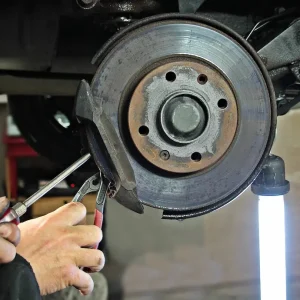Fleets looking to deploy electric vehicles (EVs) should first concentrate on the most suitable drivers to switch, with the idea being that their enthusiasm then encourages others to follow.
That is the view of Fiona Howarth, chief executive of Octopus Electric Vehicles, an offshoot of renewable energy supplier Octopus Energy. It leases vehicles – strictly pure EVs, not hybrids – and also helps people with outright purchases.
It started out focused on the consumer market, but has recently been looking to increase its operations with fleets.
Howarth said that while the firm had discovered strong fleet interest in EVs, different fleets were at varying points in the process.
“We have found fleets in general are on a path to going electric, and can be anywhere along that path,” she explained.
“You need to think about fleet vehicles, grey fleet employees, things like salary sacrifice, and charging, which should be at work or at home. So there is vehicles, charging and education.”
Citing research by Auto Trader, which found that 71% of private car buyers would consider going electric with their next car, Howarth said her firm has seen the same from fleet drivers.
She continued: “If they also have on-street parking, then that is the sweet spot for people who want to switch to EV first, so its about how you get them to switch so they become the champions.”
Howarth said that Octopus could help fleets source vehicles in the face of supply problems that are reported to be affecting some EVs.
“What we have found is some vehicles have very long lead times, so in some cases we have done stock deals so we have got stock at the moment, so if you want to switch now or have a trial now we have stock,” she said.
“We have relationships with manufacturers so we can run trials.”
Howarth said that Octopus could also help with charging infrastructure.
“We can do chargers at home, at the workplace, at a customer destination site,” she confirmed. “We are working with a big retailer at the moment looking at putting in chargers at company car parks, and separately we are working with big property developers as well, from residential to business park-type developments.”
Through Octopus Energy, Howarth said tariffs are available for EV drivers, so employees charging their cars for work at home can do so at a rate of 5p/kWh for four hours of the night every night, a third of a regular home energy tariff.
Octopus also aims to help drivers manage EV charging costs, and claim back electricity costs for business mileage through a partnership with smart charger firm Ohme.
“Ohme has created a cable with a SIM card that talks to a smart platform integrated with the API for Octopus Energy smart time-of-use tariffs, such as Agile Octopus and Octopus Go,” explained Howarth.
“You can say you need 20kWh, you need about three hours’ worth of charge, and the cheapest might be between 12am and 1am and 2am and 4am, and it will just do it for you so you can get the cheapest electricity possible. The cable also has a metering function so it can see how much electricity you need for your vehicle – without that there is no way of businesses being able to know how much their employees are charging at home.”
The metering solution is available now for domestic users and businesses can use this too, although further development on the business solution is also underway between Octopus and Ohme.
Octopus is also making vehicle-to-grid charging options available for businesses. But according to Howarth, there are benefits for firms just from offering regular charging at their facilities.
She said: “Some people are looking at a revenue stream with these charge points in the evenings. Maybe someone lives next to an office block with car parking and charge points empty every night – why can’t they go and park up, and pay for their electricity?
“The business then makes money out of that charge point, but secondly it is a really good thing for the community. They can take a role in helping clean up the air, so from a corporate social responsibility point of view, if they are hiring in the area they are looking after staff, and local residents.”





